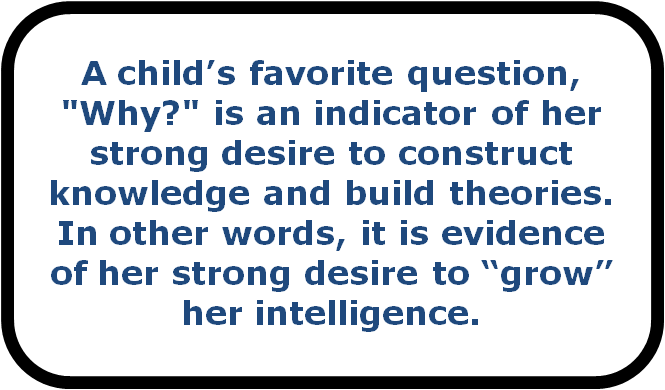There are myriad ways to foster growth mindset behaviors in young people and song is one terrific way to communicate that we value growth mindset thinking! We are excited to share this artist with you.
Sign up for our newsletter to become part of the conversation:
** Please enter a valid email to join our community **
Thank you for joing the Mindset Works Community! Check your email for more information.
There are myriad ways to foster growth mindset behaviors in young people and song is one terrific way to communicate that we value growth mindset thinking! We are excited to share this artist with you.
In the last issue, I explored two child development and early learning milestones which provide an opportunity to nurture a growth mindset in early learners. In the following article I will explore two more: inquiry and school readiness.
III. Inquiry (Wonders and Questions)
As children interact with their environment, they are continuously engaged in inquiry,  construction of knowledge, and theory building. The process of theory building itself is a very growth mindset oriented process in that it is "full of error, conflict, and contradiction" (Chaille, 2003). There is a natural connection between children as theory builders and children as having a growth mindset. A child's favorite question "Why?" is an indicator of their strong desire to construct knowledge and build theories. In other words, it is evidence of their strong desire to "grow" their knowledge and intelligence (GM).
construction of knowledge, and theory building. The process of theory building itself is a very growth mindset oriented process in that it is "full of error, conflict, and contradiction" (Chaille, 2003). There is a natural connection between children as theory builders and children as having a growth mindset. A child's favorite question "Why?" is an indicator of their strong desire to construct knowledge and build theories. In other words, it is evidence of their strong desire to "grow" their knowledge and intelligence (GM).
Within this GM opportunity, we can nurture a child's GM by (a) encouraging their wonder and questions and (b) facilitating opportunities for them to construct knowledge and build theories through the inquiry process:
1. Active observation and interaction with the environment (wonder)
2. Question asking
3. Investigation and experimentation
4. Development of conclusions
In the following article I present four child development and early learning milestones across the developmental continuum that provide authentic opportunities to nurture a growth mindset in early learners. In this first issue I will discuss the first two examples: learning to walk and a child's expression of independence (self-efficacy and agency). In the next issue I will elaborate on the third and fourth examples: inquiry (a child's questions and wonders) and school readiness.
Thanks to advances in social psychology, cognitive psychology, and neuroscience we have an abundance of scientifically based research on learning and the brain. One of the areas of research with significant implications for teaching and learning is neuroplasticity. Neuroplasticity, the idea that the brain is malleable and thus changes from learning is central to Carol Dweck's research and work on student achievement and success. She is responsible for developing the terms: growth mindset and fixed mindset (Dweck 2006).
Based on Silver's new book, Fall Down 7 Times, Get Up 8: Teaching Kids to Succeed
“You are not the boss of me!” “You can’t tell me what to do!” “I want to do it my way!” These are age-old proclamations from young people who want to declare their independence. Edward Deci and Richard Ryan (Deci, 1995), founders of self-determination theory, believe that autonomy, competence, and relatedness are essential in helping children to become self-actualized individuals. The concept of autonomy is particularly worth exploring because it not only helps build a growth mindset, but it also helps to instill a healthy sense of independence in kids.
Children perceive their circumstances as either autonomous or as controlled. With a perception of autonomy, individuals are willing to do what they are doing and embrace the activity with a sense of interest and commitment. If the situation is perceived as controlling, they will act without a sense of personal endorsement; they feel manipulated. Autonomy does not necessarily mean that one has strictly to “go it alone,” but rather it means that one is acting with a sense of choice and volition. This can happen simultaneously while one is enjoying interdependence with others.
5 Tips on Promoting Autonomy in Learners